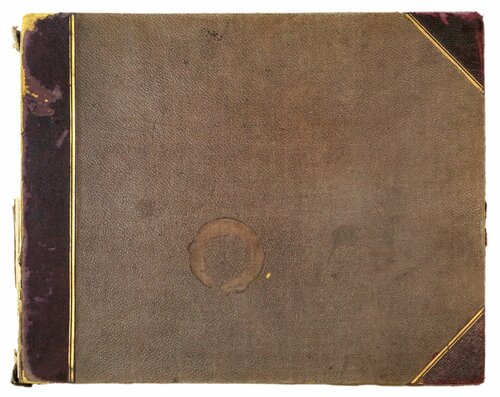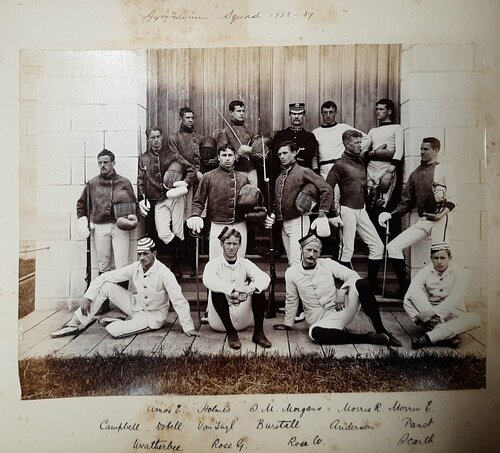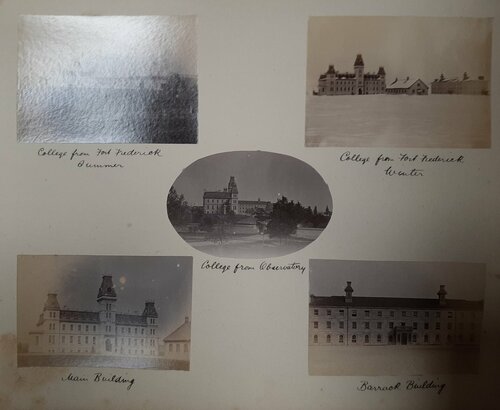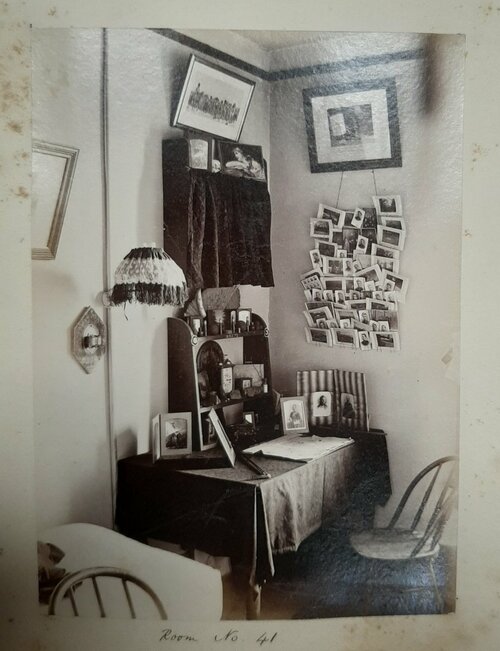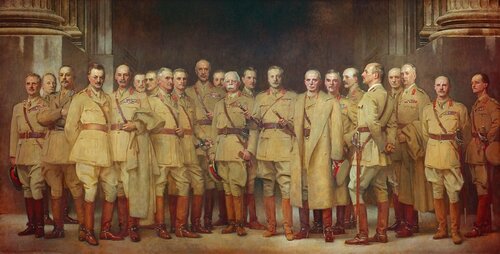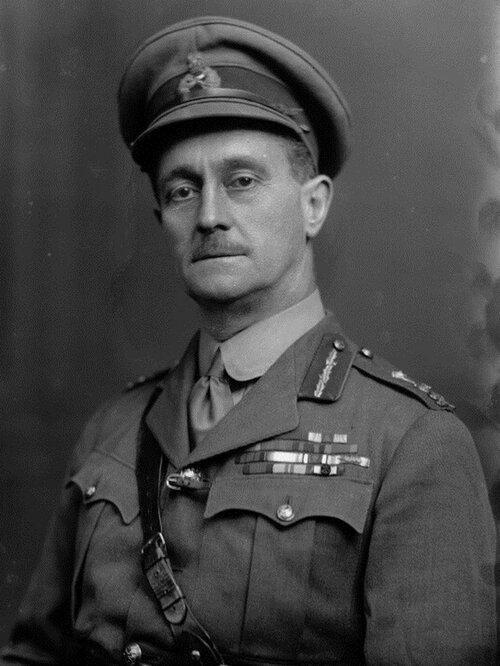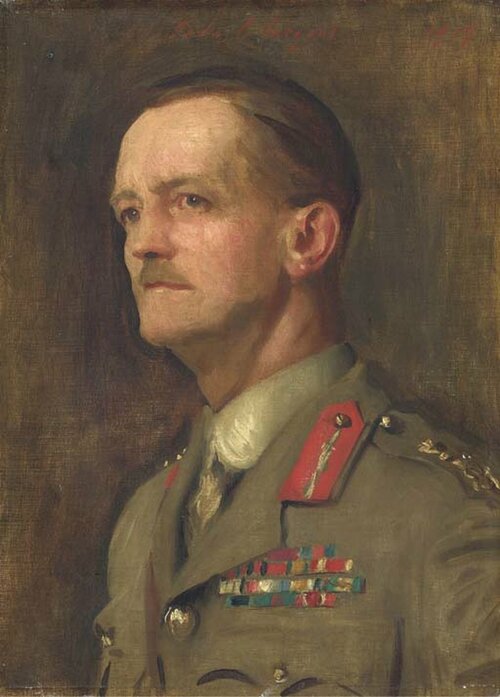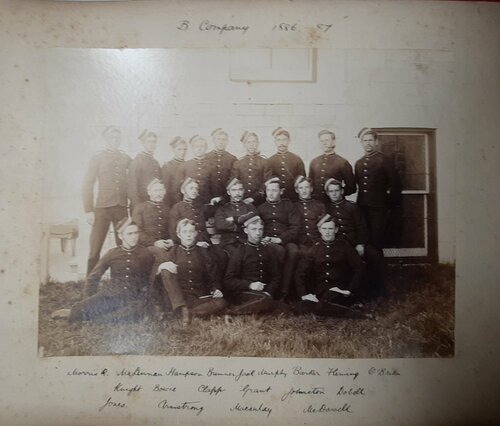Auction: 20003 - Orders, Decorations and Medals
Lot: 2
Sold by Order of a Direct Descendant
LIEUTENANT-GENERAL
SIR CHARLES MacPHERSON DOBELL KCB CMG DSO ADC FRGS
(1869-1954)
Charles Dobell's collection of Orders, Decorations, Medals and archival memorabilia represents a comprehensive memorial to a soldier whose place among his peers was recognised by his inclusion in John Singer Sargent's group portrait 'Some Generals of the Great War'. The extraordinary collection offered here, amassed by an inveterate souvenir collector who - it is evident - rarely threw anything away, encapsulates a world long departed in a way guaranteed to make those with an interest in it reflect upon his long career.
Apprenticeship
Dobell was raised in the family home, the palatial Villa Beauvoir in Sillery, Quebec; his father had emigrated from Liverpool and become rich in the lumber trade. After preliminary education in Quebec, Dobell went to Charterhouse School in England in 1883 for two years.
Returning to Canada, he entered the Royal Military College, Kingston, in September 1886 as Cadet No. 221 and was placed in B Company. In 1890, Dobell graduated with Honours, his conduct being noted as 'Very Good'. He was marked 'Distinguished' in seven out of thirteen obligatory subjects, with the same mark in four voluntary subjects. He was Company Sergeant Major of his company and wore a proficiency badge for Artillery Practice with another for being top of his class in Equitation. He was awarded three 'subject' prizes, received the Lord Stanley prize, graduated fourth of his intake and was one of only four cadets recommended in 1890 for commissions in the British army.
In August 1890, he was commissioned into 1st Bn. Royal Welsh Fusiliers, then stationed in Lucknow but warned for duty on the North-West Frontier. The battalion arrived in Peshawar early in December 1890, by which time Dobell had joined and assumed command of F Company. Early in 1891, he accompanied the battalion on an expedition to punish recalcitrant tribes in the Black Mountains of Hazara: it was a short-lived but effective campaign that earned him his first campaign Medal.
Late in 1891, aged 22, he was ensign for the Regimental Colour at a parade in Peshawar. Just a few months before his death, aged 85, in July 1954, he was present as that same Colour was marched off parade for the last time, to be laid up in St David's Cathedral, Pembrokeshire, after seventy-four years' service. In so many ways, that Colour - now preserved in the Regimental Museum - characterises Dobell's loyal service to the Regiment that welcomed him in 1890.
Experience and Responsibility
Dobell remained with the 1st battalion for the next five years, living the life of a British subaltern stationed in northern India: he learned how to command men; he rode; he shot; he probably fished. He had been a member of Kingston's Gymnastics Class and had left the college marked as 'Distinguished' in Drills and Exercises; an accomplished horseman, he was clearly a very fit young officer. Having achieved a First Class mark in Gymnastics at Lucknow in June 1892, he returned to his battalion to become regimental gymnastics instructor in April 1893. Concurrently, he passed both lower and higher standard Hindustani and obtained qualifications in Transport and Musketry in 1894. Promotion to lieutenant came in November 1892 and was accompanied by the duties of acting adjutant in May 1893; during the same period, he changed companies three times, thus obtaining wide experience of the men of his battalion. He also took leave - no doubt to go shooting - and caught his fair share of the illnesses associated with life in India. The battalion remained in northern India until embarking for Aden in October 1896. Dobell continued on to Malta to join the 2nd battalion and become its adjutant. No sooner had he settled into the appointment with his new battalion than a crisis emerged that set him on course for advancement.
Tipped for Stardom
Crete's Greek population had long resented Turkish rule. Early in 1897, this resentment became sectarian violence: the Cretans proclaimed union with Greece and rose in rebellion against the Turks; the Turks responded, bloodily. An international force from the 'Great Powers' was assembled and deployed to Crete to control the situation; as part of that force, 2nd Bn. The Royal Welsh Fusiliers disembarked at Candia early in April 1897. Working with allies attempting to separate warring factions, while also exercising objectivity and military discipline, has become commonplace for British soldiers in the post-1945 world but was relatively new in 1897. The senior officers of 2nd Royal Welsh Fusiliers were very good at it and three brevet promotions were awarded in recognition. One was to Dobell, who was to be made brevet major when promoted to captain: the promotion and thus the brevet happened almost immediately and simultaneously in 1899.
The crisis in Crete being resolved in 1898, the battalion embarked for Hong Kong and arrived in January 1899. War broke out in South Africa in October 1899 and Dobell began firing off telegrams asking for permission to join any unit, anywhere, on leave if necessary: anything to be involved. Eventually, his persistence (and his father's influence) triumphed and by late December 1899 he was attached to the staff of 2nd (Special Service) Bn., Royal Canadian Regiment. In February 1900, he was given command of 2nd Mounted Infantry battalion and exercised it with such success as to be mentioned in dispatches and created a Companion of the Distinguished Service Order (DSO) in 1901.
In July 1900, long before his DSO was gazetted, he was recalled from South Africa to China to resume the adjutancy of the 2nd battalion, then engaged in suppressing the 'Boxer Rebellion'. Once again, Dobell served in an international force created by the 'Great Powers' for a peace-keeping role. Relinquishing the adjutancy late in 1900, he continued to serve in Peking until the final withdrawal of British forces from that city in 1901. In 1902, he passed the examination for entry to the Staff College, entering the College in January 1903. Thus, as a captain and brevet major, aged 33, with a DSO, three campaign medals and experience of both administration and field command, Dobell joined an elite cadre of future staff and general officers.
The Staff Officer
A photograph of the Staff College students in the intake of 1903, contained in one of Dobell's photograph albums, is an evocative image of a departed age. Sir Henry Rawlinson, later Field Marshal Lord Rawlinson, was the commandant; few officers are without campaign medals, many have DSOs and two have VCs; all are in their regiment's full dress uniform.
Leaving Staff College in 1904, Dobell was appointed temporary lieutenant-colonel to command 1st Bn. the Northern Nigeria Regiment, West African Frontier Force, in 1905. He commanded that unit in the Northern Nigeria campaign of 1906, being mentioned in dispatches twice and awarded the brevet of Lieutenant-Colonel, concomitant upon his being promoted major; he also added basic Hausa to his various linguistic skills.
Promoted substantive Major and thus brevet Lieutenant-Colonel in 1907, he returned to England to enter the War Office as General Staff Officer grade 3, to be promoted GSO2 in 1909, to be appointed ADC to King George V and brevet Colonel in 1910, to relinquish his War Office appointment in 1911 and to be promoted substantive Lieutenant-Colonel commanding 2nd Bn. The Bedfordshire Regiment in 1912, then stationed in South Africa. In time of peace, such rapid advancement was unusual and must reflect not only Dobell's innate talent but also his ambition, professionalism and connections. Command of 2nd Bedfordshires was short-lived: he was promoted substantive Colonel and temporary Brigadier-General in September 1913 and given the post of Inspector-General of the West African Frontier Force.
During his rapid rise in the Army in the decade 1904-14, he found time to marry, in March 1908: his wife was a widow with two daughters and would present him with a daughter, Judith, in South Africa in 1912. Earlier in 1908, he had saved one R.E. Ford from drowning in the lake at Stoke Park, Buckinghamshire, and received a Testimonial from the Royal Humane Society as a result: as with so many other papers relevant to his long career, this Testimonial is pasted into his scrapbook.
The outbreak of war in August 1914 found Dobell home on leave. Since it was evident that Germany's two West African colonies of Togoland and the Cameroons were vulnerable to attack, Dobell's advice was sought on how best to capture them.
Success in the Cameroons
Britain's principal targets were the colonies' wireless stations and the ports: the one able to report movements of British shipping in the Bights of Benin and Biafra to German surface raiders, the other able to shelter and re-provision the surface raiders. In addition, capture of the ports would enable a blockade to be established that ought to starve the colonies of Togoland and the Cameroons into submission, thus minimising the need for extensive land operations in an unfavourable terrain and climate. Thus Dobell advised, specifying that naval support of ground troops would be necessary.
Given command of British forces, and ultimately Allied forces, for the expedition, Dobell sailed with his staff for West Africa in S.S.Appam on 31st August 1914. By the time he arrived off the Cameroons port of Duala, on 25th September, events had overtaken planning and Togoland had already, effectively, fallen to British and French troops. Duala was briefly bombarded by H.M.S. Challenger and, increasingly encircled by British and French ground troops, surrendered, the German forces having already evacuated the port and retreated inland. However, although the coastal strip had been secured, a sizeable German presence remained in the interior. German tactics throughout the ensuing campaign reflected their strategy of holding ground and denying Allied forces overall victory in order to retain the colony as a bargaining tool for the end of the war.
German defence was stubborn and protracted: despite severe limitations in materièl and in Intelligence, its unity of purpose contrasted significantly with that of the Allies, all three of whom - British, French and Belgian - pursued their own nationally inspired aims and consequently failed effectively to work together. Dobell's experience, in Crete and in China, was unable to counteract that. The longer the campaign continued, the more attenuated through casualties the Allied forces became; there were limitations in the number and quality of reinforcements available. The campaign became one of attrition, largely fought by black infantry on both sides, until eventually German forces escaped into the neutral Spanish colony of Muni. Dobell could only direct the campaign to a limited extent, so diverse were the Allied forces engaged and so limited the communications, but his role in the eventual Allied victory, when it came in February 1916, was undeniably significant. It was recognised too: by the KCB and the Commander's Cross of the Légion d'Honneur in 1916, coming after the CMG in the New Year Honours of 1915 and promotion to major general in June 1915. By 1916, so stagnant had the campaign in France and Flanders become, any success of Allied arms had to be celebrated, rewarded and publicised and so it was for Dobell in West Africa.
Disappointment in Palestine
The logic of taking a General fresh from success in a torpid campaign in tropical Africa and appointing him to command a desert-based force in the Middle East may escape those equipped with 20:20 hindsight but, in mid-1916, that is what the War Cabinet did with Dobell. His first role in that theatre was as Commander Western Frontier Force in June 1916. He was then appointed Commander of troops on the Suez Canal and Eastern Frontier Force in October 1916, following promotion to temporary Lieutenant-General in September. In that role, he and his superior, Sir Archibald Murray, have been held responsible for the failure of the first two battles of Gaza in 1917. While not a wholly unfair judgment, it has been made in hindsight and with little appreciation of the circumstances, among which the evident chaos of the Middle Eastern Force's command structure, inadequate staff work and Intelligence and reasonable concerns about the Force's logistics, especially in relation to the wellbeing of its horses, loom large. The first two attacks on Gaza were certainly badly handled and the second disastrously bloody. However, small recognition has been given to the immense and successful preparation work executed by Dobell and Murray before their replacement by Chetwode (his Field Marshal's Baton sold in these rooms) and Allenby that led to the eventual capture of Gaza and then Palestine. That said, it was certainly not Dobell's finest hour: perhaps too much was expected of him by the politicians in London, always hungry for favourable headlines and expecting miracles.
Redemption in India
Despite the modern condemnation of Dobell for his part in the failure to take Gaza after two attempts in 1917, he cannot have been wholly damned in the opinion of the British War Cabinet since no sooner had he returned home than it sent him abroad again, this time to Command 2nd (Rawalpindi) Division in India. He remained there until 1920, serving during the 3rd Afghan War of 1919 and being mentioned in dispatches twice. Briefly officiating as G.O.C. Northern Command India in 1920, he returned home to go on half pay in that year and in 1923 retired as an honorary Lieutenant-General. In 1926, he was appointed Colonel of The Royal Welch Fusiliers and retained that post until 1938, being noted as a particularly active and attentive Colonel. Even after relinquishing the Colonelcy, he retained his links with the Regiment, throughout the Second World War and until a few months before his death.
Envoi.
So: Sir Charles Dobell. How to rate him? His rise in the Edwardian decade was meteoric and it seems fair to say that his posting to West Africa in 1914, rather than to France and Flanders, was fortunate for him. If translation to Palestine in 1916 did not end well, he was but one General among many in that theatre for whom that was the case - and he did better, and lasted longer, than most. It is evident from his archive that he was liked and respected by his peers and his subordinates and deeply loyal to his Regiment. That he was assiduous in collecting so many souvenirs of his career permits us today to enter a world long departed and see it through the lens of an officer who promised so much, achieved a great deal but, despite being among the youngest of the Field Marshals and Generals portrayed by Sargent, is now almost a forgotten figure, probably fairly ranked as being at the top of the second division of the 'Generals of The Great War'.
A photograph album, Royal Military College, Kingston, 1886-90.
The album measuring 260 x 320 mm, covered in buckram with false leather corners, containing 30 card pages mounting half-tone photographs of Dobell's time at RMC Kingston, together with a small number of personal family photographs. Included are images of the cadets of B. Company - in which Dobell served, the football and hockey teams - in which he played - and the Gymnasium squad - of which he was part, as well as images of the interior and exterior of the College buildings, Dobell's room in College and many other subjects.
Some 'bumping' to the cover corners, which are separate from the album, some foxing of pages and some fading of images but otherwise good condition.
Subject to 20% VAT on Buyer’s Premium. For more information please view Terms and Conditions for Buyers.
Sold for
£550
Starting price
£150

